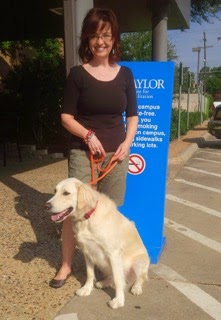“All you need is a proposal,” she said. “A mini-proposal, really. Cover letter, a couple chapters…and a synopsis. ”
I nodded, wondering what in the world was a synopsis? Since Cindy was a busy author, I hated to bother her with those minor details. I worked at a library; why not look it up myself? Thus began what I refer to as my evolving synopsis style.
Side Note: If one has no plot, it’s not easy to write a synopsis. Even if one memorizes the definition.
At the beginning, I was a panster. I wrote as it came, by the seat-of-my-pants. For the first conference, I had two decent chapters that had no relation to one another, except in my mind. Different characters, different points of view. I had a problem. With only an inkling of how they might fit into the same story, I needed a plot, a way to connect them, or I couldn’t develop the dreaded synopsis for my proposal.
That situation birthed what I called my trusty “plot parties.” I invited three or four writers out for pie and coffee and we brainstormed ideas for my story. Madly taking notes, sometimes I got a great suggestion that made it worth the cost of the pie. More often, something was said that caused me to think, “Not that…but how about this?” By the end of the night I was not only on a sugar-high, but had something like a story pieced together. A plot.
Though I liked the panster role, as a new writer, I didn’t have the liberty to enjoy it long. A synopsis was always required. Agents and editors alike wanted to see how I’d crafted the story from the first page to the last. My chapters would show off the writing. But the synopsis would tell them if it was worth the read.
Once I accepted my lot, I came to rely on my synopsis. I wrote long, long ones, relating everything that happened. The cat sneaked under the house and came out the next day, dragging a clue. The protagonist went for coffee, then couldn’t get to sleep that night, setting her up to see something she normally wouldn’t. That bratty child down the street threw a ball through the neighbor’s window and made her mad – maybe she had a temper that got out of control? The protagonist’s sister collected pink lustre. I put in all the details I wanted to know for later. It became a very dear guide to my story.
Saving the long synopsis as “Synopsis.mine.doc” I began to cut words for the proposal. No editor wanted to know the sister collected pink lustre. I edited it over and over, then sent it to my first reader, Maxine, who cut more. Finally, I had something I could send to my agent, who cut it some more before sending it out in the proposal.
This worked through two books. And several unsold proposals.
During the writing of A Stitch in Crime, I tried something new. I took my first, long synopsis and cut
With this method, I was better able to keep track of things that shouldn’t slip by without another mention. I’d put a Post-it in a later chapter as a reminder. It looked a mess, but it served me well.
Truly, there is no right way to write and plot. There are many ways. You must find your own way. I finally found mine.
Though someone was just talking about Scrivener….
Cathy Elliott is a full-time writer in northern California whose cozy mysteries reflect her personal interests from quilting and antique collecting to playing her fiddle with friends. She also leads music at church and cherishes time with her grandchildren. Cathy’s other plot-twisting works include Medals in the Attic and A Vase of Mistaken Identity.
Website & Occasional Blog - www.cathyelliottbooks.com
Pinterest - https://www.pinterest.com/cathyelliott10/
Facebook – Author Cathy Elliott cathyelliottbooks.com
Pinterest - https://www.pinterest.com/cathyelliott10/
Facebook – Author Cathy Elliott cathyelliottbooks.com














